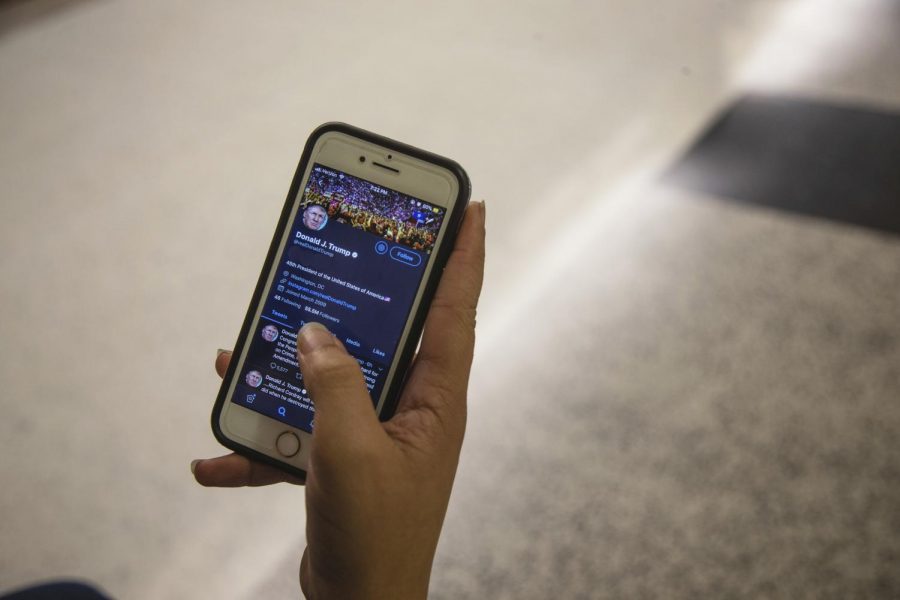UI students encourage politicians to get active on social media
Many students at the UI find that Twitter savvy politicians like President Trump are motivating them to head to the polls on Election Day.
October 31, 2018
With the upcoming midterm elections, many students are turning to social media to learn about candidates and the issues on their campaign platforms.
Politicians such as President Donald Trump, Sen. Kamala Harris, and Sen. Bernie Sanders often use social media as platforms to reach the younger generations of voters.
Second-year UI student Connor Johnson said his Twitter feed is full of political figures with whom he agrees when it comes to beliefs, such as Democrats Sen. Elizabeth Warren, Sanders, and Sen. Cory Booker, among others.
“I think that their diction is usually effective,” Johnson said. “However, for those who are already passionate, we are more likely to engage with it. Though for those who are more apathetic toward politics, it can be hard to engage them and make them care, no matter how good your diction is.”
UI student Elizabeth Jackson follows local figures as well as national politicians.
RELATED: Rosario: I’m not excited to vote, but I will anyway
“Our society is so controlled by social-media platforms, I do think this is the most effective way for political figures to reach their audience,” Jackson said. “But because politicians have such a loud and strong voice, I do believe they must eloquently make their point via social media. They are representing themselves and the American people.”
Jackson said politicians are seen as pop-culture figures when they are active on social media. Speech through social media is relatable and catches the eye of young voters, she said.
UI political-science graduate student Scott LaCombe said student voters historically turn out far less than older voters. People 18-35 had the lowest turnout rate in the state in the 2016 election.
“Politicians want to win re-election, so they will focus on earning support from people who will actually vote,” LaCombe said.
LaCombe stressed the only real-time young adults turn out to vote is when issues are being discussed that they care about, such as marijuana, higher-education costs, and others.
“Students are among the most active users of social media, so they will be exposed even more by appeals,” LaCombe said. “Students are also increasingly using social media to organize rallies and protests, which may lead to more turnout in the midterms. What may shrink the influence of social media is that people self-select what politicians to follow on Facebook, Twitter, etc.”
LaCombe said a prime example would be Sanders’ 2016 primary campaign, in which Sanders focused on student-debt. LaCombe said when students are the primary concern, they are often more likely to vote.
However, regardless whether students are affected by social-media posts, Jackson and Johnson agreed that it is important for young voters to be civically engaged in the electoral process and gain knowledge about the candidates up for election.
“As much as I would love for everyone to agree with my beliefs about how the government should function and treat the people of this country, there are many who don’t,” Johnson said. “I encourage them to vote just as much as those who side with me. Voting is our way to implement change in this country.”






